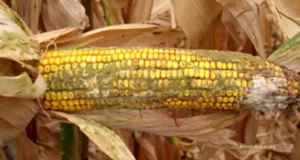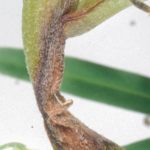By Zablon Oyugi, August 28, 2024, Experts in the food and feed industry in Kenya are gathering in Nairobi for a three-day workshop aimed at discussing ways to strengthen and build the capacity of Food Business Operators (FBOs) in the country to enable them address food safety concerns.
Organized by the U.S. Department of Agriculture (USDA), Food and Agriculture Export Alliance (FAEA) and Trademark Africa in collaboration with the Kenya Government, the workshop which kicked off on Tuesday will be running through Thursday.
While officially opening the workshop, Hon. Dr. Paul K. Ronoh, the Principal Secretary, State Department for Agriculture, Ministry of Agriculture & Livestock Development said FBOs’ capacity to comply with regulatory requirements and upgrade their food safety programs to match international best practices varies significantly. While large corporations with access to export markets have established modern food safety programs, small and medium-sized FBOs are still falling behind.
“Against this backdrop, the USDA, in collaboration with FAEA and Trade Mark Africa (TMA), has committed to supporting capacity-building initiatives in Kenya with a focus on the private sector. The main goal of these initiatives is to strengthen the capacity of the private sector within key value chains to effectively manage food safety risks. A well-equipped industry will be better prepared to engage in the implementation of Kenya’s newly drafted Food and Feed Safety policy and bill, which is currently before the National Assembly for the second time after passing through the Senate,” said Dr. Ronoh.
According to the PS, there are 20 existing acts of parliament which were created to control the industry but have been outlived their relevance due to emerging technology hence the bill will bring some order and provide the needed roadmap to better streamline foo and feed sector.
Regulation gaps
Mr. Peter Owoko, Head of Policy, State Department for Agriculture while taking participants through the bill said that there have been gaps in the regulation of the sector that the previous laws lacked to address.
“For instance, we have had the overlapping of roles by food and feed quality assessment and law enforcing officers. However, the bill has, among other things, created the office of food and feed controller which will be in charge of the industry and regulating authorities,” said Owoko.
In his opening remarks, Mr. Damian Ferrese, Acting Regional Agricultural Counselor at the USDA/Foreign Agricultural Service, U.S. Embassy in Nairobi, stated, “The enactment of food and feed safety policy and legislation is just one milestone in a longer journey. At USDA, we remain committed to supporting programs that enhance food security and boost the economic prosperity of the Kenyan people. I hope this workshop marks the next step toward achieving these important objectives.”
Ms. Gina Tumbarello, Executive Director of FAEA said the alliance is honored to co-host the workshop with the USDA this week.
“Our presence here reflects our commitment to supporting industry stakeholders in Kenya, helping them be well-prepared to share their expertise and insights during consultations with the Government of Kenya,” said Tumbarello.
“Together, our goal is to ensure that current and future regulations effectively safeguard public health, are feasible to implement, and foster the growth of Kenya’s industry both locally and in export markets,” she added.
Finding what works for the country
Dr. Janie Dubois of FAEA who is regulating the meeting discussions said that experts should focus in finding what works for the country in relation to economic, climate change and pests and diseases pressures.
“We need to identify what can be modified because it will not make sense to come up with standards that will not be applicable. In this, it is time to turn to the academia to get scientific knowledge on how to harmonise standards and identify cost-effective ways that will enable FBOs operate effectively,” said Dubois.
On his side, Dr. Andrew Edewa, Director, Standards and SPS Measures at TMA emphasise the benefit of complying with safety regulations and standards for trade facilitations.
“Doing business internationally requires traders to comply with safety and other applicable standards to get their goods into the market. This has become the norm of doing business and our traders need to stop complaining but make an effort to put mechanisms and measures for complying,” said Edewa.
He also identified the fact that there are many and emerging standards regionally and globally hence the need to harmonise these trade regulations to limit the tedious compliance process.







